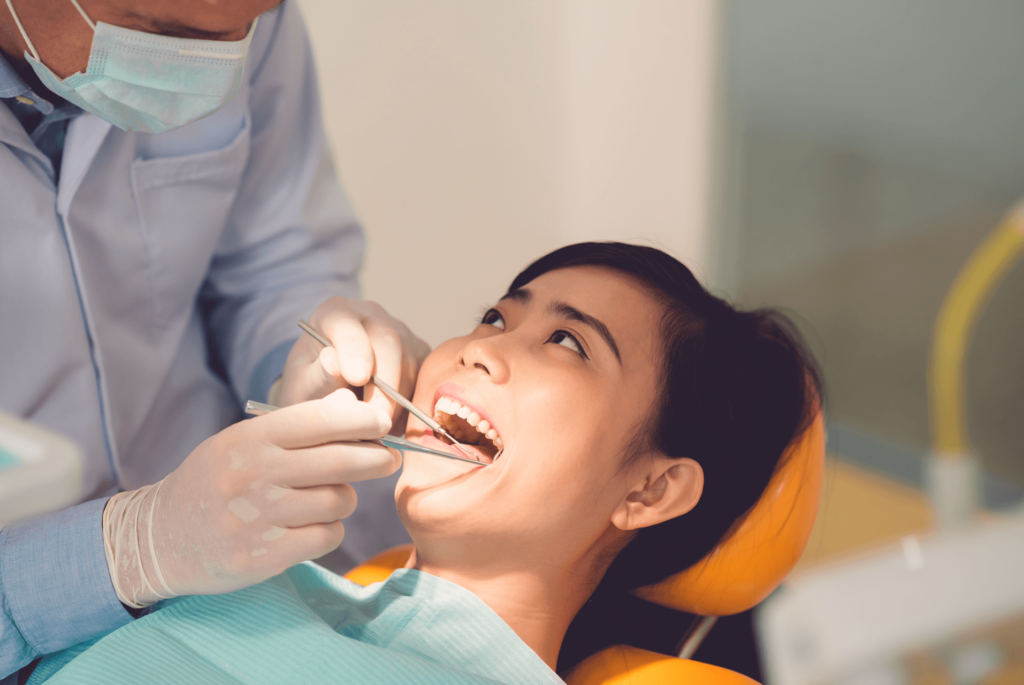Oral Cancer Screening

Have you ever wondered how a routine dental appointment could potentially detect a life-threatening disease?
Although often overlooked, oral cancer is a significant health concern affecting millions worldwide.
It can develop in various parts of the mouth and throat, leading to severe complications if left undetected and untreated.
According to the American Cancer Society, the lifetime risk of developing oral cavity and oropharyngeal cancer is about 1 in 60 for men and 1 in 141 for women.
In this article, we explore the critical topic of oral cancer screening, its importance, its procedure, and its invaluable benefits.
Knowledge is power when it comes to oral cancer. Read our blog and learn how to protect yourself through regular screenings.
What is oral cancer?
Oral cancer refers to the abnormal growth of cells in the oral cavity, which can develop into a tumor. It is commonly associated with tobacco use, excessive alcohol consumption, and certain strains of the human papillomavirus (HPV). Oral cancer can be life-threatening if not diagnosed and treated promptly.
Risk factors for oral cancer
Several risk factors contribute to the development of oral cancer. These include tobacco and alcohol use, HPV infection, a history of sun exposure, poor oral hygiene, a compromised immune system, and a family history of cancer. Understanding these risk factors can help individuals take preventive measures and undergo regular screenings.
Importance of oral cancer screening
Oral cancer screening is vital for early detection and prompt treatment.
Dentists and healthcare professionals can initiate appropriate interventions to prevent disease progression by identifying precancerous or cancerous lesions in the mouth.
Regular screenings enable the detection of oral cancer at its initial stages when it is most treatable.
Signs and symptoms of oral cancer
Awareness of oral cancer’s signs and symptoms is crucial for early detection.
Common indications include
- persistent mouth sores
- red or white patches on the gums or tongue
- difficulty swallowing or chewing
- a persistent sore throat
- hoarseness
- unexplained weight loss
If any of these symptoms persist for more than two weeks, it is essential to seek medical attention.
The oral cancer screening procedure
Oral cancer screening is a simple and non-invasive procedure a dentist or oral healthcare professional can perform.
During the screening, the healthcare provider examines the entire oral cavity, including the lips, tongue, cheeks, gums, and throat, for any abnormalities or suspicious lesions.
In some cases, additional tests, such as a biopsy, may be recommended for further evaluation.
Benefits of oral cancer screening
Regular oral cancer screening offers several advantages.
It helps in the early detection of oral cancer, leading to improved treatment outcomes and increased survival rates.
Screening also allows for identifying precancerous lesions, which can be treated before they progress into cancer.
Additionally, oral cancer screening allows healthcare professionals to educate patients about the risk factors associated with oral cancer and the importance of adopting a healthy lifestyle.
Treatment options for oral cancer
The treatment of oral cancer depends on various factors, such as the cancer stage, the tumor’s location and size, and the patient’s overall health.
Treatment options may include
- surgery
- radiation therapy
- chemotherapy
- targeted therapy
- or a combination of these approaches
Treatment aims to remove the cancerous cells and prevent their spread to other body parts.
Oral cancer screening frequency
The frequency of oral cancer screenings may vary depending on individual risk factors and the recommendations of healthcare professionals.
Generally, regular screenings are recommended at least once a year for most individuals.
However, high-risk individuals, such as those with a history of tobacco or alcohol use or HPV infection, may require more frequent screenings.
Conclusion
Oral cancer screening is a vital component of preventive healthcare.
Regular screenings enable the early detection of oral cancer and precancerous lesions, improving treatment outcomes and saving lives.
Individuals can reduce their risk of developing oral cancer by adopting a healthy lifestyle, practicing good oral hygiene, and seeking timely medical attention.
Take charge of your oral health today! Schedule an oral cancer screening and ensure early detection.
- Call us at; 847-895-8444
- Email us at; pearlywhites.drjain@yahoo.com
Pearly Whites Dentistry proudly serves the following areas: Schaumburg, IL, Hoffman Estates, Streamwood, Barrington, Palatine, Arlington Heights, Elk Grove Village, Hanover Park, Bartlett, Roselle, and all surrounding suburbs.
